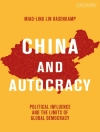This book presents a systematic study of the history, theory and policy of investor citizenship and residence programmes. It explores how states develop new rules of joining their community in response to globalisation and highlights the tension between citizenship policies aimed at migrant integration and those, such as the sale of passports, which create ‘long-distance citizens’. Individual chapters offer insights in the historical relationship between citizenship, money and property; discuss arguments that support and counter the practice of the sale of citizenship; and examine the interests and strategies of the different actors—states, companies, individuals—that constitute the ‘supply’ and ‘demand’ sides of the burgeoning citizenship industry. The book provides a global overview of the market for investor citizenship as well as a separate policy analysis of the sale of citizenship and residence in the European Union.
Inhoudsopgave
1. Introduction.- 2. Citizenship and Money: Historical Snapshots.- 3. To sell or not to sell: the ethics of
ius pecuniae.- 4. A Classification of Investment-Based Citizenship Programmes.- 5. ‘Long-Distance Citizens’: Strategies and Interests of States, Companies and Individuals in the Global Race for Wealth.- 6.
Ius pecuniae in a Multilevel System: The European Experience.- 7. Conclusion.
Over de auteur
Jelena Džankić is Coordinator of the Global Citizenship Observatory (GLOBALCIT) at the European University Institute, Italy. She researches citizenship in Europe and beyond, Europeanisation, and politics of identity.












